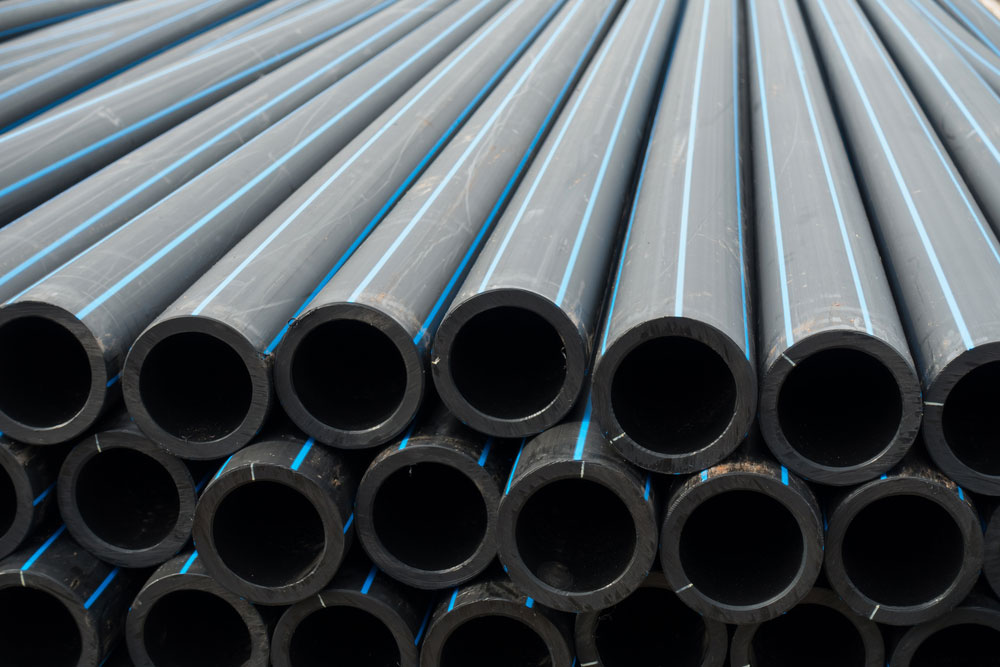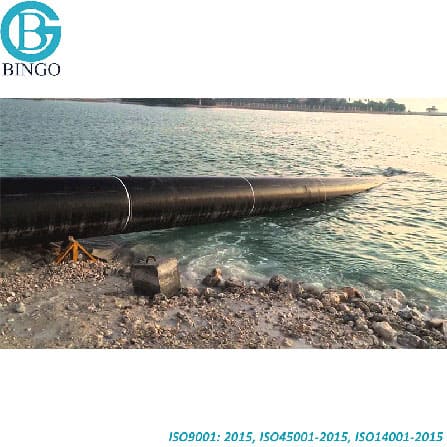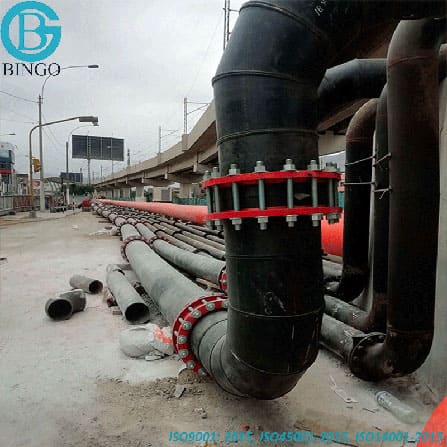The necessity of partnering with an HDPE Pipe Supplier for municipal builds
Wiki Article
Discovering the Leading Pipeline Manufacturers: Quality, Reliability, and Technology
The pipeline manufacturing industry stands at the crossway of quality, reliability, and advancement, driven by leading companies such as Tenaris and Vallourec. These manufacturers are not only devoted to creating high-performance products yet are additionally introducing sustainable practices that resolve modern-day environmental worries (HDPE Pipe Supplier). As we take a look at the requirements that specify excellence in pipeline remedies, it comes to be noticeable that the landscape is rapidly advancing. What specific developments are emerging, and just how are these improvements forming the future of pipeline facilities? The responses may redefine industry standards in manner ins which are not yet totally understoodLeading Manufacturers Introduction
In the domain name of pipeline manufacturing, several principals emerge as leaders, each contributing substantially to the sector's landscape. Firms such as Tenaris, Vallourec, and JFE Steel have established themselves as frontrunners by continually delivering top notch items that fulfill rigid sector standards. Tenaris, renowned for its cutting-edge solutions, concentrates on seamless and bonded pipes, providing primarily to the oil and gas industry. Vallourec, a French international, concentrates on the production of premium tubular solutions, emphasizing sustainability and advanced innovation in its manufacturing processes.JFE Steel, a major Japanese manufacturer, is recognized for its considerable variety of steel pipelines, especially those utilized in power and framework jobs. Their commitment to research study and development has actually enabled them to produce high-performance products that endure rough environmental problems. Furthermore, companies like united state Steel and National Oilwell Varco have actually increased their market presence by diversifying their item offerings and improving operational efficiencies.
These leading makers not only control the market yet additionally drive development within the market, establishing standards for top quality and integrity that other players desire achieve. Their contributions are essential for satisfying the raising demand for resilient and efficient pipeline options worldwide.
Criteria for Top Quality Evaluation
Quality evaluation in pipeline manufacturing hinges on 2 important criteria: material longevity requirements and manufacturing procedure efficiency. Ensuring that materials fulfill extensive durability standards is necessary for the long life and dependability of pipelines. Furthermore, enhancing the manufacturing procedure can boost productivity while preserving high top quality, inevitably affecting overall efficiency and safety.Material Sturdiness Specifications
Ensuring the long life and reliability of pipeline materials is essential for preserving facilities integrity and operational effectiveness. Product toughness criteria play a vital role in examining the top quality of pipelines, dictating the efficiency and life expectancy of the products made use of in building and construction. Manufacturers must comply with a variety of extensive requirements, consisting of those established by companies such as ASTM International and the American Petroleum Institute (API)These requirements examine different variables, consisting of deterioration resistance, tensile stamina, and exhaustion efficiency. As an example, pipes made use of in destructive environments need materials that can stand up to chemical deterioration, while those subjected to high-pressure conditions have to exhibit exceptional tensile strength.
Additionally, factors such as temperature fluctuations and ecological problems have to be thought about, as these can considerably influence material actions with time. Manufacturers commonly utilize innovative screening methodologies, including accelerated aging tests, to mimic lasting wear and assurance that materials go beyond or meet market criteria.
Manufacturing Process Efficiency
Manufacturers' capacity to enhance producing procedure efficiency is vital for creating high-quality pipes that fulfill rigorous sector requirements. Effectiveness in making straight affects price administration, manufacturing timelines, and general product honesty. To accomplish this, leading pipeline manufacturers apply innovative methods such as lean manufacturing, automation, and real-time data analytics.Lean making principles are essential in reducing waste and maximizing resource use. By improving procedures and removing redundancies, suppliers can boost efficiency while making sure constant top quality. Automation technologies, including robotics and computer system mathematical control (CNC) machines, play an essential duty in improving accuracy and minimizing human error, consequently raising the integrity of the last product.
In addition, making use of real-time information analytics permits suppliers to check production processes constantly, allowing them to identify traffic jams and make prompt adjustments. This aggressive strategy not only improves efficiency yet also sustains high quality guarantee protocols by guaranteeing compliance with governing standards.
Integrity in Pipeline Solutions
Integrity in pipeline remedies is paramount, as it straight impacts the safety and performance of liquid transportation systems. Trick factors include the sturdiness of products used, adherence to strenuous testing and certification criteria, and the unification of cutting-edge material solutions that improve performance. Understanding these elements is vital for producers intending to deliver reputable pipeline facilities.Value of Durability
Attaining resilience in pipeline options is crucial, as it straight influences the lasting efficiency and safety of facilities. Sturdy pipes are crucial for minimizing upkeep costs and lowering the possibility of catastrophic failures. This reliability is specifically crucial in sectors such as oil and gas, water supply, and wastewater monitoring, where the effects of pipeline failing can be serious, both economically and eco.The products and manufacturing processes utilized by pipeline producers play a substantial role in determining the toughness of the end product. Making use of top quality basic materials, advanced modern technologies, and ingenious style concepts guarantees that pipes can endure numerous stress factors, consisting of stress variations, temperature variants, and harsh settings.
Moreover, the resilience of pipelines is closely connected to their capability to withstand outside aspects such as soil motion, seismic activity, and chemical exposures. Efficient corrosion protection methods, such as coatings and cathodic security, even more boost the durability of pipelines, guarding them versus degeneration over time.
Purchasing durable pipeline services eventually converts to boosted operational performance, reduced downtime, and enhanced security, attesting the important relevance of durability in modern pipeline manufacturing.
Evaluating and Accreditation Specifications
In the domain name of pipeline options, strenuous screening and certification requirements are vital to guarantee the integrity and security of infrastructure. These standards serve as standards for reviewing the performance and durability of pipeline products and systems, validating they meet details regulatory and industry demands.Evaluating procedures typically encompass different approaches, consisting of stress testing, hydrostatic assessments, and non-destructive testing strategies. These analyses are necessary for determining potential weaknesses or defects in the products Full Report prior to they are deployed in real-world applications. Furthermore, accreditation by acknowledged companies guarantees that suppliers stick to developed guidelines, which cultivates depend on amongst stakeholders, consisting of end-users, engineers, and contractors.
Lots of leading pipeline producers participate in constant tracking and enhancement of their testing protocols to adapt to developing industry requirements and technological developments. Compliance with requirements such as ASTM, ASME, and ISO not just boosts product dependability but likewise decreases the risk of ecological incidents connected with pipeline failures.
Innovative Product Solutions
The growth of innovative material services has transformed the landscape of pipeline manufacturing, boosting both efficiency and sturdiness. Advanced products such as high-density polyethylene (HDPE), cross-linked polyethylene (PEX), and composite products have actually become game-changers, supplying premium resistance to rust, temperature variations, and pressure variations. These products not just prolong the life-span of pipelines however additionally minimize maintenance prices, making sure dependable long-term efficiency.Manufacturers are significantly adopting clever materials that incorporate sensing units for real-time monitoring. This modern technology enables proactive upkeep, substantially boosting integrity by detecting leaks or architectural weak points before they rise into essential failings. The integration of nanotechnology has actually also resulted in the advancement of finishes that improve the sturdiness of pipelines versus abrasion and chemical exposure.
Sustainability is another crucial emphasis, with makers exploring bio-based composites and recyclable materials that minimize ecological effect. As regulative criteria continue to progress, the focus on innovative material options becomes vital in conference rigorous safety and security and environmental needs. Eventually, these innovations not just boost the reliability of pipeline systems yet additionally add to the total effectiveness and sustainability of power transportation frameworks.
Technologies in Pipeline Technology
Innovations in pipeline technology are reinventing the sector by enhancing efficiency, security, and ecological sustainability. Current improvements concentrate on clever pipeline systems that make use of sensors and IoT technology to monitor conditions in actual time, making it possible for proactive maintenance and reducing the threat of failures. These systems can detect leakages, stress adjustments, and various other anomalies, enabling for rapid response and minimizing environmental impact.In addition, the growth of innovative materials, such as corrosion-resistant and composite alloys, substantially prolongs the life expectancy and dependability of pipes. HDPE Pipe Supplier (American Plastics LLC HDPE Pipeline Manufacturer). These materials lower maintenance prices and improve performance in rough atmospheres, making them ideal for water, oil, and gas transportation
Moreover, automation and robotics are playing an important role in pipeline building and assessment. Drones and robot devices promote surveys and evaluations of hard-to-reach areas, ensuring detailed evaluations without compromising safety and security.
Ingenious layouts, such as modular pipeline systems, enable for better adaptability in installment and alteration, catering to the vibrant needs of the energy field. Together, these technical developments not just enhance operational effectiveness but additionally add to an extra sustainable and durable pipeline infrastructure, leading the way for a greener future.
Study of Success
Across numerous fields, effective applications of innovative pipeline innovations demonstrate considerable renovations in functional effectiveness and safety and security. One significant situation is the implementation of smart pipeline tracking systems in the oil and gas industry, where real-time information analytics have reduced leakage discovery times by over 50%. This not just minimizes ecological dangers yet likewise boosts the total honesty of pipeline infrastructure.
In addition, a significant manufacturer executed robot examination modern technologies in its pipeline upkeep operations, causing a 40% enhancement in assessment performance. This technique has structured upkeep routines and significantly lowered downtime.
These instance studies highlight just how leading pipeline manufacturers are leveraging advanced innovations to foster reliability and functional quality, inevitably establishing brand-new criteria for the sector. As these successes remain to unravel, they lead the way for additional developments in pipeline manufacturing and management.

Environmental Sustainability Practices
Frequently, pipeline manufacturers are focusing on environmental sustainability methods to alleviate their eco-friendly impact and boost the long life of their items. This dedication is mirrored in various efforts intended at lowering waste, preserving power, and utilizing sustainable products throughout the manufacturing process.
Many makers are adopting sophisticated modern technologies that lessen discharges and energy consumption. The integration of automated systems and energy-efficient machinery aids enhance manufacturing while reducing dependence on fossil fuels. In addition, firms are significantly transforming to environmentally friendly products, such as recycled metals and bioplastics, which not only decrease the ecological impact yet also advertise a circular economic climate.
Furthermore, pipeline producers are applying strenuous lifecycle evaluations to assess the ecological effects of their items from creation to disposal. This technique enables them to identify possibilities for renovation and foster accountable sourcing and waste management methods.
Cooperation with environmental companies even more boosts these efforts, as manufacturers look for to straighten their operations with global sustainability objectives. Ultimately, these ecological sustainability methods not only contribute to a healthier earth however additionally setting suppliers as accountable leaders in the sector, appealing to environmentally conscious stakeholders and clients alike.
Future Trends in Pipeline Manufacturing
As the demand for extra lasting and efficient infrastructure expands, pipeline manufacturing is positioned for significant innovations that will reshape the market. Trick patterns anticipated in the coming years include the assimilation of advanced materials, such as corrosion-resistant and composite alloys, which boost sturdiness while decreasing environmental effect. Manufacturers are additionally anticipated to adopt innovative production methods, like additive manufacturing and automation, to simplify procedures, lower waste, and lower costs.The increase of wise pipeline innovations, integrating sensors and IoT gadgets, will enable real-time monitoring and predictive maintenance, thereby improving safety and operational efficiency. This digital change will certainly not only optimize resource monitoring yet additionally facilitate conformity with strict environmental regulations.
Sustainability will remain a central focus, driving producers to buy green practices, including energy-efficient manufacturing approaches and reusing efforts. As the worldwide emphasis on environment adjustment magnifies, pipeline manufacturers will need to adjust by establishing services that meet both economic and ecological demands.
Often Asked Questions

What Industries Largely Make Use Of Pipeline Products From These Manufacturers?
Pipeline products are largely utilized in sectors such as oil and water, wastewater and gas management, chemical mining, construction, and handling. These industries depend on reliable, durable, and risk-free transport of products and liquids.
How Do Manufacturers Guarantee Compliance With International Pipeline Requirements?
Manufacturers assure conformity with international pipeline standards by carrying out strenuous top quality control processes, conducting regular evaluations, adhering to recognized governing structures, and buying staff member training to advertise recognition and understanding of safety and security and top quality needs.What Is the Ordinary Life Expectancy of Pipelines From Leading Manufacturers?
The ordinary life-span of pipes from leading makers commonly varies from 30 to 100 years, relying on product, environmental conditions, and maintenance practices. American Plastics LLC HDPE Pipeline Manufacturer. Regular examinations and adherence to sector requirements significantly affect longevity and efficiencyExist Certifications Particular to Pipeline Production High Quality?
Yes, different certifications exist for pipeline making high quality, consisting of ISO 9001 for quality management systems and API criteria particular to pipes. These certifications guarantee adherence to strenuous safety and security, performance, and environmental standards within the market.Exactly How Do Manufacturers Handle Pipeline Maintenance and Services?
Manufacturers typically apply an aggressive upkeep strategy that consists of routine inspections, checking systems for early discovery of issues, and an organized repair work method. This method warranties pipeline stability, reduces downtime, and boosts overall functional efficiency.Quality evaluation in pipeline manufacturing pivots on two essential requirements: product resilience criteria and producing procedure efficiency - Pipeline Manufacturer. Product resilience requirements play a vital function in examining the quality of pipelines, determining the efficiency and lifespan of the materials utilized in building and construction. The materials and producing procedures used by pipeline manufacturers play a considerable duty in determining the sturdiness of the last item. The ordinary lifespan of pipelines from leading producers normally varies from 30 to 100 years, depending on material, environmental conditions, and maintenance methods. Yes, different qualifications exist for pipeline manufacturing quality, consisting of ISO 9001 for top quality management systems and API standards certain to pipelines
Report this wiki page